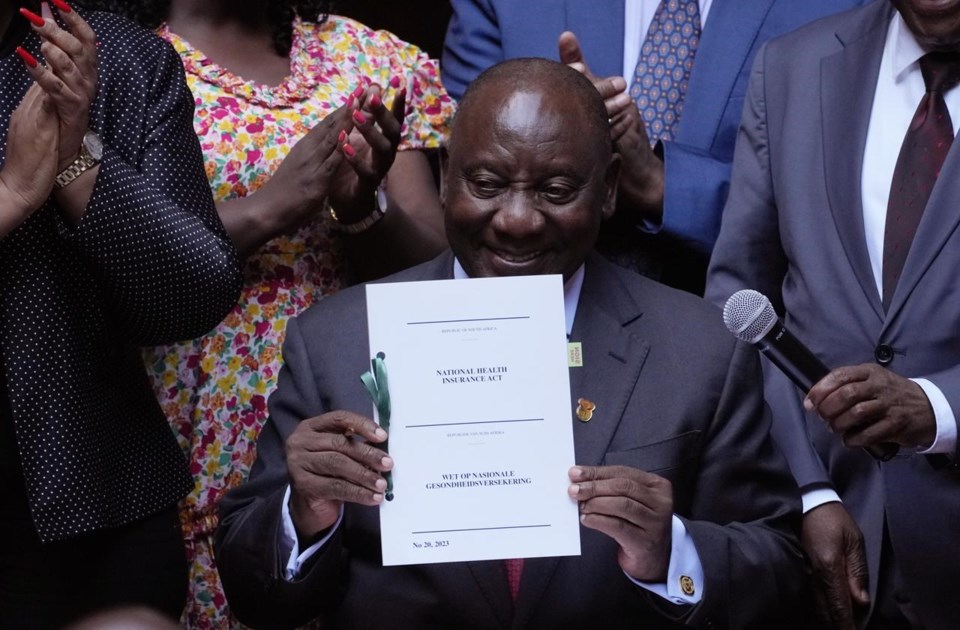JOHANNESBURG (AP) — South African President Cyril Ramaphosa on Wednesday signed into law a bill that aims to overhaul the healthcare system to address deep inequality, but it faces legal challenges from critics.
The law introduces what is known as National Health Insurance, which will provide funds for all South Africans to access private healthcare. Currently, 80% of the population relies on strained state-run public health services while about 16% has access to private healthcare through medical aid plans.
The country's unemployment rate is 32.9%, with most of the Black majority population unable to afford private healthcare. Public health facilities often have long lines and medicine shortages.
According to Ramaphosa, the aim of the National Health Insurance is to provide access to quality health care for all and integrate the health system.
“In its essence, the National Health Insurance is a commitment to eradicate the stark inequalities that have long determined who in our country receives adequate healthcare and who suffers from neglect," he said.
Opposition parties accuse Ramaphosa of using the law as a campaign strategy by announcing it nearly two weeks before much anticipated elections.
The May 29 vote is expected to be one of the country's most highly contested. Ramaphosa’s ruling African National Congress faces the possibility of receiving less than 50% of the vote for the first time since it came into power in 1994.
Concerns have also been raised about the affordability of the law and possible tax increases to fund it.
The official opposition Democratic Alliance said Wednesday it would legally challenge the new law.
Civil society group AfriForum has also announced plans to challenge the constitutionality of the law, while some business forums have described it as unworkable and unaffordable.
The Health Funders Association, an organization representing stakeholders involved in funding private healthcare, said it would take significant time before the plan comes into effect.
“There will be no immediate impact on medical scheme benefits and contributions, nor any tax changes. The HFA is well prepared to defend the rights of medical scheme members and all South Africans to choose privately funded healthcare, where necessary," spokesman Craig Comrie said.
Others have welcomed the law.
Dr. Cedric Sihlangu, general secretary of the South African Medical Association Trade Union, said it has long advocated for reforms that “significantly improve patient care and access to health services.”
___
AP Africa news: https://apnews.com/hub/africa
Mogomotsi Magome, The Associated Press



